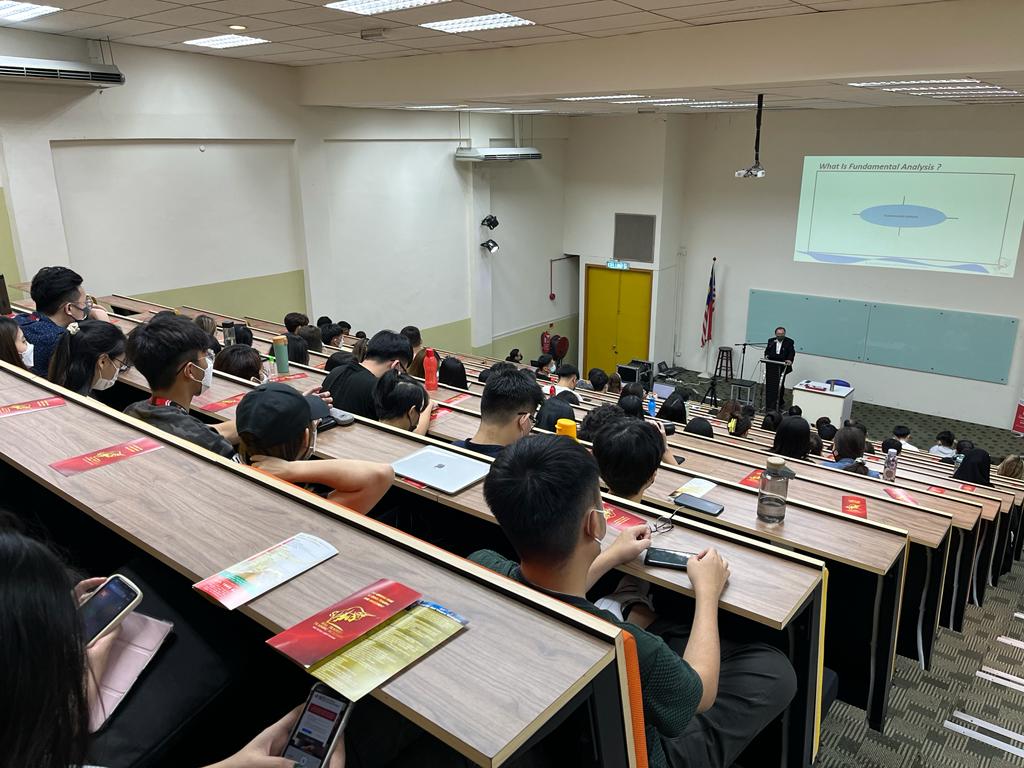“Love it or loathe it, money is an important part of society. And our relationship with money – how we use it, who we trust to look after it, and how we as financial customers expect to be treated is definitely changing,” shared Katherine Lim, Head of Programme at INTI International College Subang’s School of Business and Communication (SBC), about the expectations we have towards the banking and financial services industry.
She added that money has well and truly gone digital. “You can now pay for goods and services at the tap of a screen via mobile apps or by scanning your phone in a shop. Did you know that in China, people can even pay by flashing their smiles? Yes, using a ‘Smile to Pay’ facial recognition payment service, consumers there can opt to pay by just smiling. These days, physical money often doesn’t come into it,” she said.
To keep abreast with these latest trends, INTI International College Subang has introduced the Diploma in Financial Informatics for students to meet the needs of tomorrow’s world. Financial informatics is increasingly prominent to financial institutions to stay competitive, to identify new business opportunities and to detect threats and frauds[1].
“At INTI, we believe education must change constantly to be at par with the current development that each industry sees through. Industrial Revolution 4.0 (IR4.0) has influenced consumers to adopt a digital lifestyle in almost all aspects of their daily activities. The inevitable change in consumer behavior has also forced the banking and financial services industry to digitalize their business operations to stay competitive and relevant,” said Katherine.

Diploma in Financial Informatics students attending a guest lecture at INTI International College Subang.
Financial services is a broad term used to describe the various offerings within the finance industry – encompassing everything from insurance and money management to payments and digital banking technology[2].
Elaborating further about financial services, Katherine said, “There are a multitude of stakeholders and moving parts within financial services, from credit card issuers and processors to legacy banks and emerging challengers. And with financial activity becoming increasingly digitized, especially as consumers are choosing to manage their finances from home amid the ongoing coronavirus pandemic that began in December 2019, financial institutions and start-ups are sharpening their technology and expanding remote services.”
Hence, to prepare and enable INTI students to stay updated and current with the evolving finance industry, the programme was launched in August 2021.
“Our curriculum is frequently reviewed. Besides revisiting the existing curriculums, the faculties at INTI often work tirelessly to introduce new programmes that will further facilitate our students’ learning experience which encompasses international exposure, innovative learning, and individual development,” Katherine explained.
The Dean of SBC, Hew Fui Mun supported Katherine saying that the programme consists of a unique curriculum that incorporates elements of technology into the field of finance.

Students from the Diploma in Financial Informatics programme pose for a group photograph after participating in an employer project coordinated by the faculty and Career Services department.
“Students enrolled in this programme are exposed to the core basics of finance and Information Technology (IT) skills such as data mining, business intelligence and analytics. Just so you know, data mining is used in analytics, but they aren’t the same. Data mining is the process of getting the information from large data sets, and data analytics is when companies take this information and dive into it to learn more. Data analysis involves inspecting, cleaning, transforming, and modeling data. Students are exposed to these nuances of the finance sector, and it further enhances their thought processes. We introduce programmes and modules that will make a difference to our students besides allowing them to stand out among their peers,” said Fui Mun.
Talents with in-depth knowledge on IT and financial services will have a distinct advantage in the job market. She said students at INTI are exposed to employer projects and Fintech Innovation Projects, where they will obtain hands on experiences in providing solutions to real industry issues. This encourages students to think out-of-the-box as they look for creative and practical solutions for industry partners.
A wide range of career opportunities await a graduate of the Diploma in Financial Informatics, including Junior Business Analyst, Junior Financial Advisor, Risk Management Officer, Analytics and Business Intelligence Junior Executive, Finance Officer, Banking Officer, User Experience (UX) or User Interface (UI) Design Junior Executive in the finance industry.
“The list will continue to grow as the fintech world expands. Through the Diploma in Financial Informatics programme, we look forward to nurturing graduates to be career-ready especially at the forefront of the financial technology world,” Fui Mun concluded.
[1] https://www.insiderintelligence.com/insights/financial-services-industry
[2] https://www.scss.tcd.ie/Khurshid.Ahmad/Teaching/Lectures_on_Financial_Informatics/Introduction.pdf